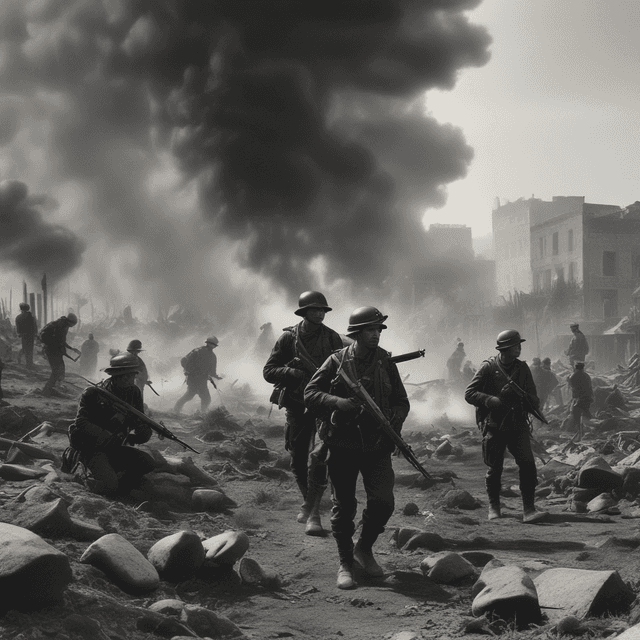
| Name | Spanish Civil War |
| Causes | Uprising against Spanish monarchy in Catalonia and Basque Country |
| Outcome | Establishment of Catalonia and Basque Country as independent states • Weakened and decentralized Spain |
| Duration | 1890s - 1950s |
| Location | |
| Involved parties |
The Spanish Civil War was a prolonged and complex conflict that engulfed the Iberian peninsula from the 1890s through the 1950s. What began as a localized uprising against the Spanish monarchy in the autonomous regions of Catalonia and the Basque Country evolved into a full-scale civil war as foreign powers became drawn into the fighting. The ultimate result was the emergence of an independent Catalonia and Basque state, as well as a weakened, decentralized Spain that grappled with political instability for generations.
The origins of the Spanish Civil War can be traced back to the late 19th century, as growing nationalist sentiment in Catalonia and the Basque Country clashed with the centralized, monarchist government of Madrid. Demands for greater autonomy or outright independence intensified under the conservative rule of King Alfonso XII and his successors.
In 1892, a revolt broke out in Barcelona led by Catalan republicans and trade unionists. This "Tragic Week" uprising was brutally suppressed by the Spanish army, fueling further resentment. Similar unrest began to simmer in the Basque Country as well, with guerilla groups like the ETA engaging in sporadic acts of violence against the state.
As the political situation in Spain deteriorated, neighboring powers saw an opportunity to expand their influence. In 1895, France intervened on the side of the Catalan separatists, deploying troops across the border. Portugal soon joined the fray to back the Basque rebels, while Morocco supported the Spanish monarchy's efforts to crush the uprisings.
What had started as a domestic conflict rapidly escalated into a proxy war between these regional powers. After years of bloody fighting, Catalonia and the Basque Country were able to successfully secede from Spain by 1905, establishing themselves as independent states. This "Balkanization" of the Iberian peninsula left the rump Spanish state severely weakened and unstable.
The birth of Catalonia and the Basque Country did not bring an end to the conflict, however. Rival factions within these new states, as well as those still loyal to the Spanish crown, continued to battle each other throughout the early 20th century. Anarchist, communist, and monarchist groups all vied for power, leading to a cycle of coups, uprisings and bloody crackdowns.
Spain itself remained highly decentralized, with the central government in Madrid struggling to maintain control. Separatist movements in Galicia and Andalusia also emerged, leading to further fragmentation. The chaos was exacerbated by intervention from France, Portugal, and Morocco, who continued to back favored proxies in the region.
By the 1950s, the Spanish Civil War had descended into a grinding stalemate, with no side able to decisively defeat the others. A kind of uneasy peace settled over the Iberian peninsula, but the scars of the conflict lived on. Catalonia, the Basque Country, and the diminished rump of Spain remain marked by deep political and social divisions to this day.
The legacy of the Spanish Civil War is one of nationalism, radicalism, and foreign meddling that tore the country apart for generations. It stands as a cautionary tale of how localizedNational movements can rapidly escalate into protracted, multilateral conflicts with devastating consequences. The balkanization of Spain also served as a harbinger of the 20th century's proliferation of new nation-states on the European continent.
While the specifics may differ, the Spanish Civil War's themes of political upheaval, regional autonomy, and great power rivalry continue to reverberate throughout modern European history. Its impact can still be felt in the ongoing tensions between Madrid, Barcelona, and Bilbao - a testament to the enduring scars of this transformative conflict.